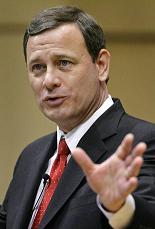
A Chicago Sun Times Report
WASHINGTON, D.C. – In an historic decision, the U.S. Supreme Court on Thursday upheld the individual insurance requirement at the heart of President Barack Obama’s health care overhaul.
The decision means the overhaul will continue to go into effect over the next several years, affecting the way that countless Americans receive and pay for their personal medical care. The ruling also handed Obama a campaign-season victory in rejecting arguments that Congress went too far in requiring most Americans to have health insurance or pay a penalty.
Chief Justice John Roberts announced the court’s judgment that allows the law to go forward with its aim of covering more than 30 million uninsured Americans.
The court found problems with the law’s expansion of Medicaid, but even there said the expansion could proceed as long as the federal government does not threaten to withhold states’ entire Medicaid allotment if they don’t take part in the law’s extension.
The court’s four liberal justices, Stephen Breyer, Ruth Bader Ginsburg, Elena Kagan and Sonia Sotomayor, joined Roberts in the outcome.
Justices Samuel Alito, Anthony Kennedy, Antonin Scalia and Clarence Thomas dissented.
It’s one of the court’s most important rulings in more than a decade, with the country watching to see of the health care reform Congress passed for Obama in 2010 survived to see its complete implementation in 2014.
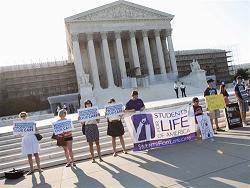 Crowds gathered outside the Supreme Court in Washington Thursday morning, holding signs advocating many sides of the debate.
Crowds gathered outside the Supreme Court in Washington Thursday morning, holding signs advocating many sides of the debate.
This week, Illionois Gov. Pat Quinn expressed hope the law would survive but Wednesday highlighted a particular piece that insurers be required to allow children to stay on their parents’ health-care plans into adulthood.
“I really believe in that provision to makes sure parents can have health insurance for their children on their own policy up to the age of 26. A lot of young people don’t have health insurance, and one way to get it is to be on their parents’ health insurance policy,” Quinn told reporters Wednesday. “It’s a very important reform that President Obama led the way to get enacted.”
The decision on the law — known as the Affordable Care Act — is expected to influence whether Obama wins a second term in November or is beaten by Mitt Romney, who along with Republicans in Congress called for the health-care law’s dismantling.
Opponents argued the law was overly broad, intrusive and ultimately unconstitutional. There were also questions about whether it will reduce costs and deliver better care without hurting businesses.
The Supreme Court had three possible paths with the law, which was enacted March 23, 2010. The justices could have upheld it in total, uphold it in parts or strike it down.
Observers saw one key part of the law — the mandate that individuals obtain health insurance by 2014 or pay a penalty — as a potential element vulnerable to being struck down as unconstitutional.
Also at issue was the section expanding Medicaid by making more of the medically needy eligible for the federal/state program. That section could mean Cook County gets up to $70 million a year from the federal government for treating previously uninsured adults whose care had been subsidized by the county and state.
The sweeping law also banned health insurers from denying coverage to those with many pre-existing conditions, did away with lifetime caps on insurance payouts for those fighting chronic conditions and gives the elderly discounts on prescription drugs and free preventive services like colonoscopies.
State Sen. Bill Brady (R-Bloomington), who co-chaired a legislative panel studying the health care law’s push to set up exchanges that would enable the uninsured to buy health care, said Wednesday he hoped the court tossed out the law entirely so the states can address health-care legislation on their own without the “heavy hand of the federal bureaucracy dictating this.”
“I think we’ve got a better opportunity if we have the ability to work as 50 different organizations — by that I mean states — to do what we think is the right thing for our people and our state,” Brady said. “Eventually, one model will probably find itself better and other states will adopt it.”
Brady, Quinn’s 2010 gubernatorial rival, said he wants to gauge Congress’ reaction and the reaction of the winner of the presidential campaign before embarking on a state health-care initiative of any sort.
Supreme Court watchers have pointed to Justice Anthony Kennedy as the potential swing vote on the health-care law case.
After three days of oral arguments in March on the case, much of the betting was on a 5-4 decision — close either way. .
Tea leaf readers looking for signs pointed to the two hours of questioning over the individual mandate — a central part of the law, effective in 2014 — that calls for everyone to have health insurance or pay a penalty. An issue is whether the individual mandate can be jettisoned with the rest of the law preserved.
Solicitor General Donald Verrilli — who defended the Obama administration — took more than 100 questions from the justices, while the lawyers challenging the law got about only 87, according to CNN’s count.
As CNN reported, “Verrilli, in the view of many court-watchers, had a bad day, struggling at times to find his voice and fend off a furious rhetorical assault by some skeptical members of the bench.
“Chief Justice John Roberts was especially tough — he interrupted Verrilli 23 times, but only on seven occasions on the other side.”
“You are,” Kennedy told Verrilli, “changing the relationship of the individual to the government.”

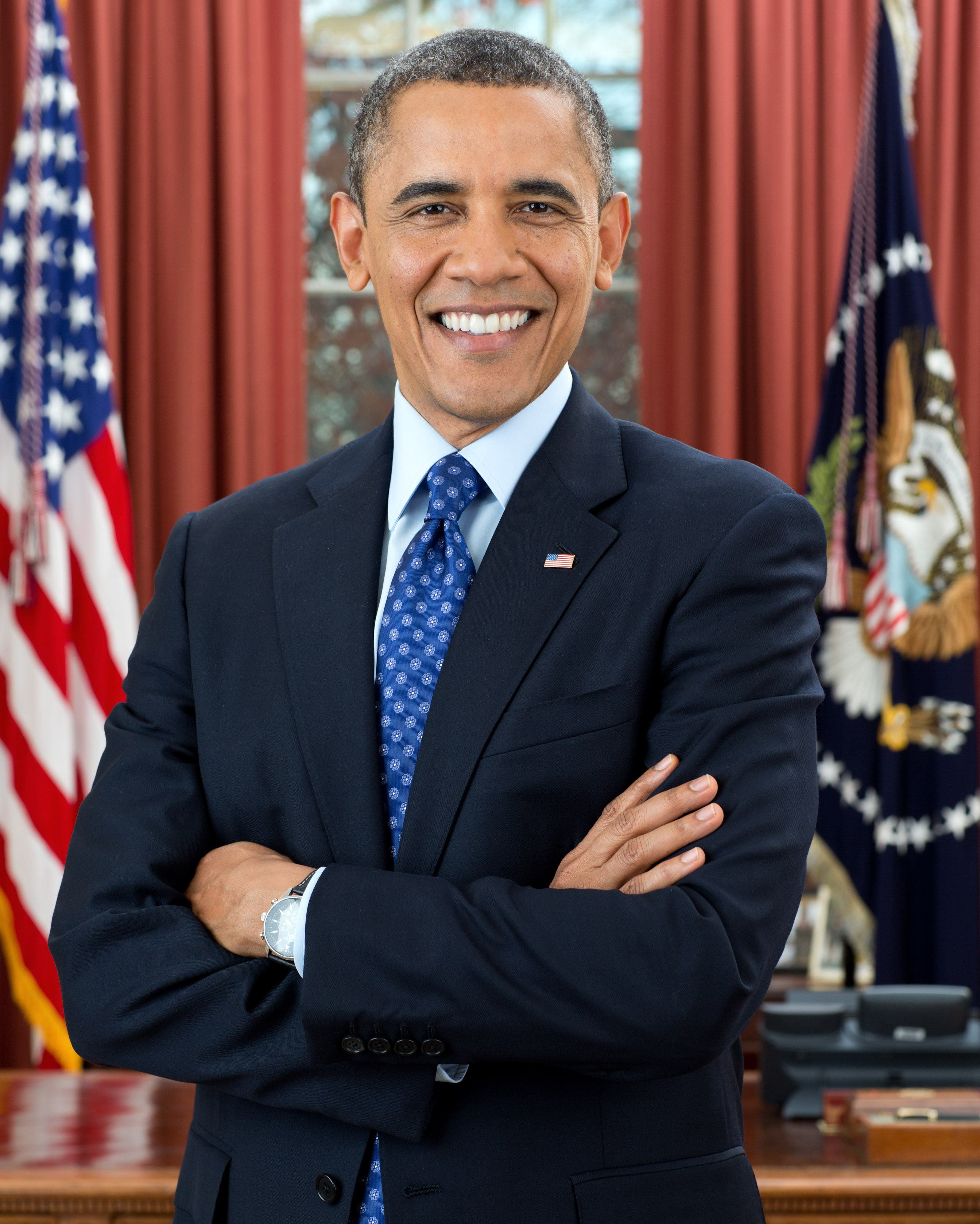
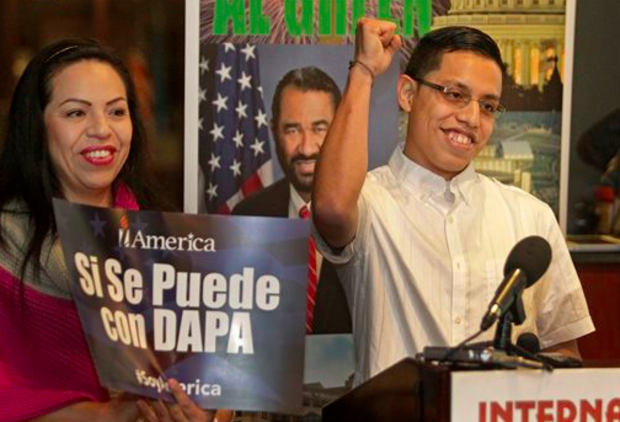
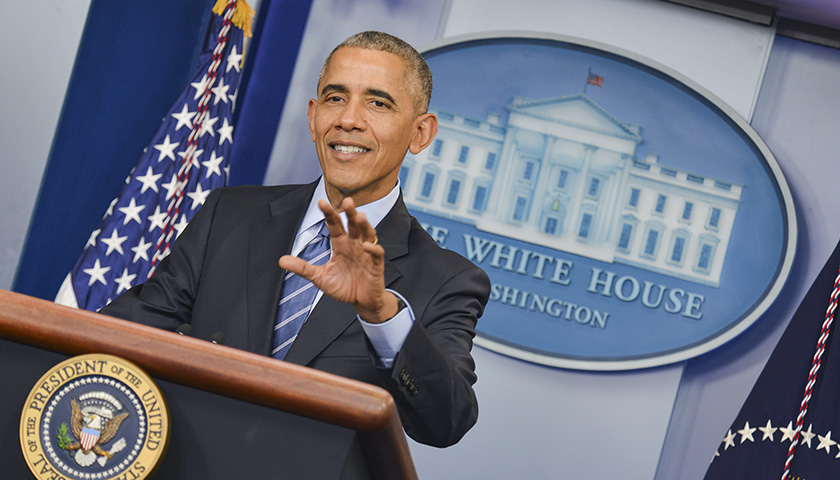
Be the first to comment